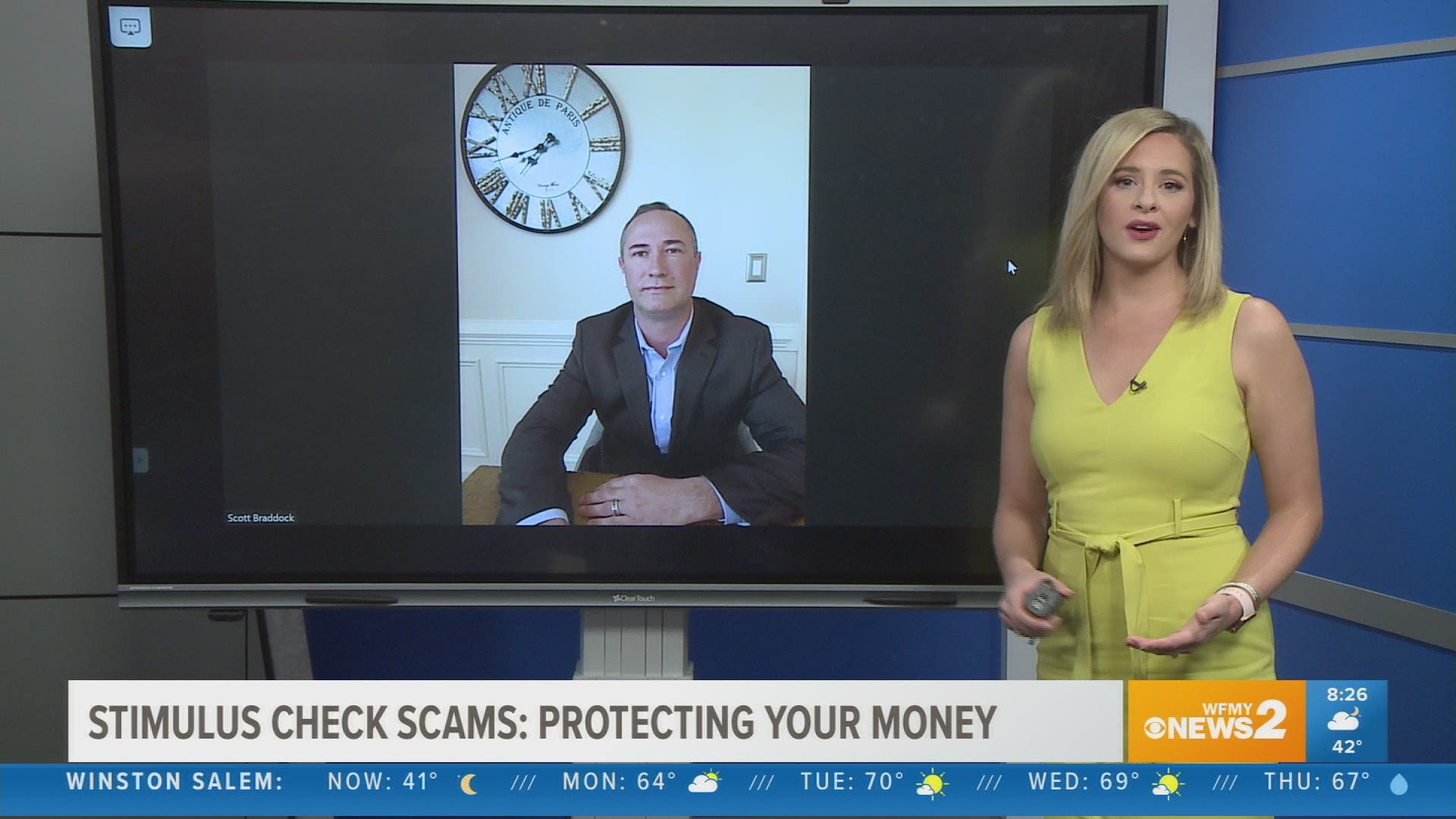As millions of Americans receive their stimulus checks, the treasury department is warning us to beware of scammers. Local financial professional Scott Braddock from Scott Braddock Financial joins us to discuss what you need to know and how to protect your money.
First, for people who don't know, what's in the CARES Act?
This new law promises checks to most Americans, expands unemployment benefits and offers loans to small businesses. It also sets aside money for hospitals struggling to keep up with the resources needed to fight the coronavirus.
An estimated 93% of taxpayers will get a check. Adults making less than $75,000 per year will receive $1,200 and $500 for each child.
The amount you receive will phase out if you make more than $75,000, and those making more than $99,000 a year won’t receive any money.
If you want to calculate how much you’ll receive, check out our stimulus check calculator.
What should people who are expecting a check be on the lookout for?
Checks are being deposited in bank accounts starting this week, and the IRS is planning to start sending paper checks in early May.
Scammers are already contacting people about the checks, hoping to steal your money and personal information.
An important thing to note, the IRS will never refer to this money as a “stimulus check.” The official term is “economic impact payments.”
How can we protect ourselves from coronavirus scams?
Phishing emails and phony websites that look official are popping up as scammers work to get bank account information in exchange for masks or free virus testing kits.
You might receive a phone call, text or message on social media telling you to click a link to enter personal or bank account information.
Never share personal or financial information via email, text message or over the phone.
Do not click links in any suspicious emails or text messages.
If you believe you’ve been a victim of a coronavirus scam, contact law enforcement immediately.
Tax season also provides another opportunity for scammers. What do we need to know?
In response to the coronavirus pandemic, the deadline to file and pay federal income taxes has been extended to July 15, 2020.
On the positive side, filers and companies will have an additional 90 days to file their federal tax returns and make payments without interest or penalties.
However, this also allows more time for scammers to file a fake return in your name, so you want to file your taxes as soon as possible.
Why should we file our taxes sooner than later?
Receive Stimulus Money Faster
Filing your taxes early could allow you to get your stimulus money sooner. The government will start by sending money to those who have their direct deposit information on file with the IRS. By filing your 2019 taxes as soon as possible, you will ensure the IRS has your updated bank account information so you don’t have to wait for a paper check in the mail.
Prevent Identity Theft
Filing early is also a simple way to protect your identity. In 2019, Americans filed more reports about identity theft than any other consumer complaint. All identity thieves need to file a claim electronically is your name and tax ID number. By getting your tax return early, the IRS is more likely to recognize a fake return being filed in your name. If you think you’ve been a victim of tax fraud, I have a few resources on my website to report a claim.
Brace for Your Tax Bill
The sooner you calculate your tax liability, the more time you have to plan and budget for your tax bill due July 15th. Especially in this uncertain time when people have experienced a loss of income and turbulent investments, you’ll want a clear picture of what you owe. Even if you wait until the last minute to run the numbers and file for an extension, you still have to pay what you owe. What we don’t want to see people do is put their tax bill on a high-interest credit card that they aren’t able to pay off right away.

